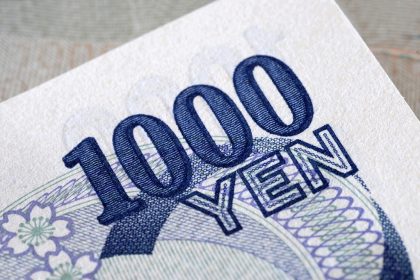[ad_1]
The government said it will also be buying securities with a much shorter tenor as its measures are pegged at stability in both the long and short term.
The currency devaluation rocking most countries of the world has shifted to Asia with the Japanese Yen plunging to 150 against the United States Dollar, the lowest level not seen since 1990, about 32 years ago.
The worrisome trend has got policymakers more agitated and on their toes with all eyes affixed on the Bank of Japan’s (BoJ) 2-day policy meeting slated for next week. The economic turmoil the world has seen this year, including the aftermath of the Coronavirus pandemic, the geopolitical war between Russia and Ukraine as well as the tensions in the Korean region has particularly unsettled the Japanese economy.
Despite visible inflation, policymakers unveiled last month that they will taper down raising interest rates in a bid to prevent further devaluation of the Japanese Yen. When the BoJ meets next week, this decision is expected to be upheld with additional measures announced to help prop the flailing fiat currency.
At present, the plunging Japanese Yen has fueled a depression in the 10-year government debt yields which crushed the 0.25% threshold that the government believed will never be breached. The yield on the 20-year bond has also touched a level not recorded since September 2015.
As part of its most proactive measures, the Bank of Japan is set to go on a bond acquisition spree, a move it believes will help stabilize the yield markets. As announced on Thursday, it will be purchasing government securities worth as much as 100 billion yen ($666.98 million) with tenor pegged at 10-20 years.
Additionally, the government said it will also be buying securities with a much shorter tenor as its measures are pegged at stability in both the long and short term.
Japanese Yen Decline: Protecting against Volatility
Despite the gloomy outlook for the Japanese Yen, the country’s Finance Minister Shunichi Suzuki said the focus for the government will be to protect against volatilities that the plunging currency can cause.
The government will take “appropriate steps against excess volatility,” Suzuki said, adding that “Recent rapid and one-sided yen declines are undesirable. We absolutely cannot tolerate excessively volatile moves driven by speculative trading.”
While the government is worried about the latest trend in its capital market, experts believe that the devaluation of the Yen is not at a level that should give so many concerns yet. Speaking in an interview with CNBC’s Squawk Box, ANZ chief economist Richard Yetsenga said he is “not that worried” when asked about his thoughts on the JPY/USD pair touching 150.
“I don’t think we’re into destabilizing currency territory yet,” he said. “There’s lots of emotive words around it, but what problems has it engendered?”
Irrespective of Yetsenga’s opinion, the government is focused on its short and long-term targets, and stirring a positive change in the appreciation of the Yen against the dollar is one of its top priorities.
next

Benjamin Godfrey is a blockchain enthusiast and journalists who relish writing about the real life applications of blockchain technology and innovations to drive general acceptance and worldwide integration of the emerging technology. His desires to educate people about cryptocurrencies inspires his contributions to renowned blockchain based media and sites. Benjamin Godfrey is a lover of sports and agriculture.
[ad_2]
Source link



